“No one is an island unto themselves.”
The Sally McDonnell Barksdale Honors College functions on this idea, so it makes sense that its dean does, too. In the last few years, he’s found a hobby that embodies that same sentiment.
Dean Douglass Sullivan-Gonzalez, known affectionately as DSG, is the face of the Honors College. Almost all of the students in the program have met DSG at some point in their college careers, and almost every one of them have instantly become a fan of his. However, something many might not know about him is his hobby outside of the office – beekeeping.
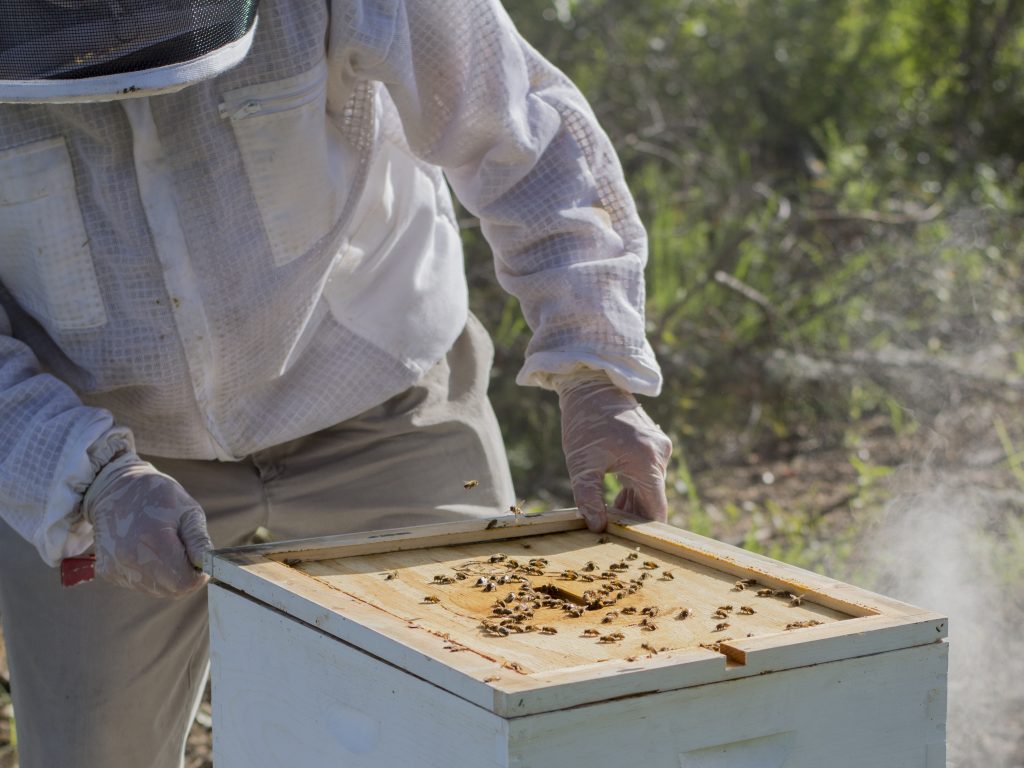
Beekeeper Douglass Sullivan-Gonzalez inspects his hive and feeds the bees sugar water. Photo by Christian Johnson
DSG first assisted a beekeeper and worked a couple of hives with him as an undergraduate. Over the course of the last five years, he read up on beekeeping and “took the plunge” two years ago and bought his first hives.
Today, DSG has over 10 hives on his property and said he is still “learning daily.”
The facet of beekeeping that really drew him in is the mutualism that bees offer humans, and the idea that something as small and seemingly insignificant as a honey bee can affect so many, that no one is an island.
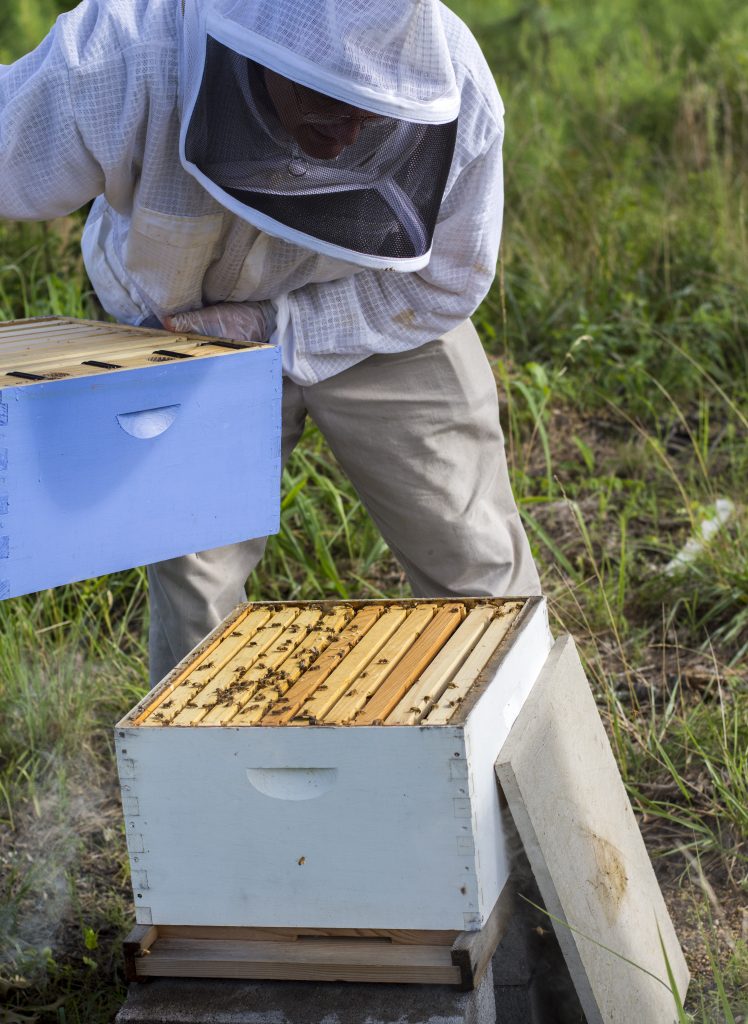
Beekeeper Douglass Sullivan-Gonzalez pulls the top shelf off of one of his hives to inspect the bees and honey below. Photo by Christian Johnson
“The world of honey bees invites the observer and beekeeping into an intricate world of insect democracy,” he said. “Bees talk to the beekeeper. Learning to understand their conversation, their distinctive hum when pleased or displeased is thrilling.”
DSG said he finds the challenges confronting beekeeping intellectually stimulating as well, reminding him of the sensitive nature of the relationship between humans and bees. One of the recent challenges facing beekeeping is the Varroa mite, “a nasty little critter that attaches to the bee larvae and plants a deadly virus that deforms the wings of the new honey bee.”
“It has wiped out tens of thousands of colonies in the USA in the last two decades,” he said. “How researchers work with beekeepers to combat this challenging pest has proved to be intellectually stimulating and provides an incredible passageway between the academy and the world of nature and human economy.”
That “passageway” is something DSG is sharing this year with some students in the form of the newly-formed Beekeepers Club within the Honors College at Ole Miss. After a group of students contacted him about helping pioneer the club, they met and began to take action.
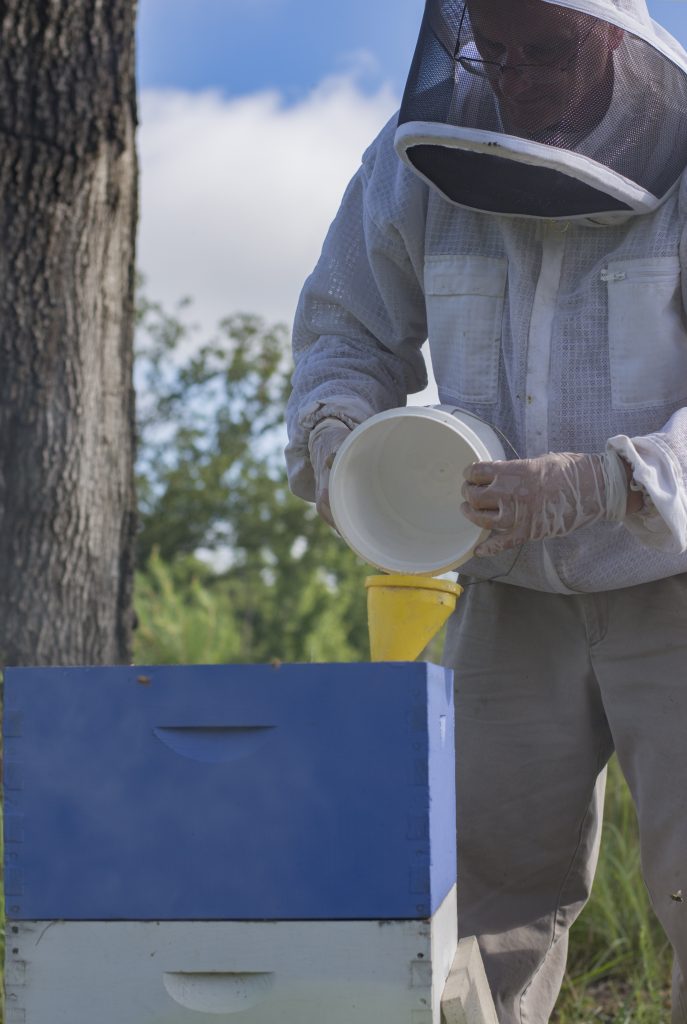
Douglass Sullivan-Gonzalez feeds his bees a sugar water mix to keep them healthy and allow them to build up enough honey to survive through the winter. Photo by Christian Johnson
The club plans to purchase hives and raise bees starting next spring. The project allows students to get a hands-on approach to beekeeping, and they will get to see the fruits of their labor if everything goes well. The honey should be ready to harvest 15 months after they begin.
“Students need to step into this dynamic world to get a sense of the key questions beekeepers and biologists are asking in order to sense future challenges coming their way,” he said. “We humans, how we organize, how we combat our challenges, are not all that different from the world of bees.”
Honors College student Caroline Bailey is acting as the current “go-between” the University and the club while it gets firmly on its feet.
Bailey decided to get involved with the club because she has been interested in honey bees and the beekeeping lifestyle for a couple of years, but she never had the opportunity to keep bees until the club was formed.
“When I saw the announcement about the club, I knew this was something I had to try,” Bailey said. “I am fulfilling a dream.”
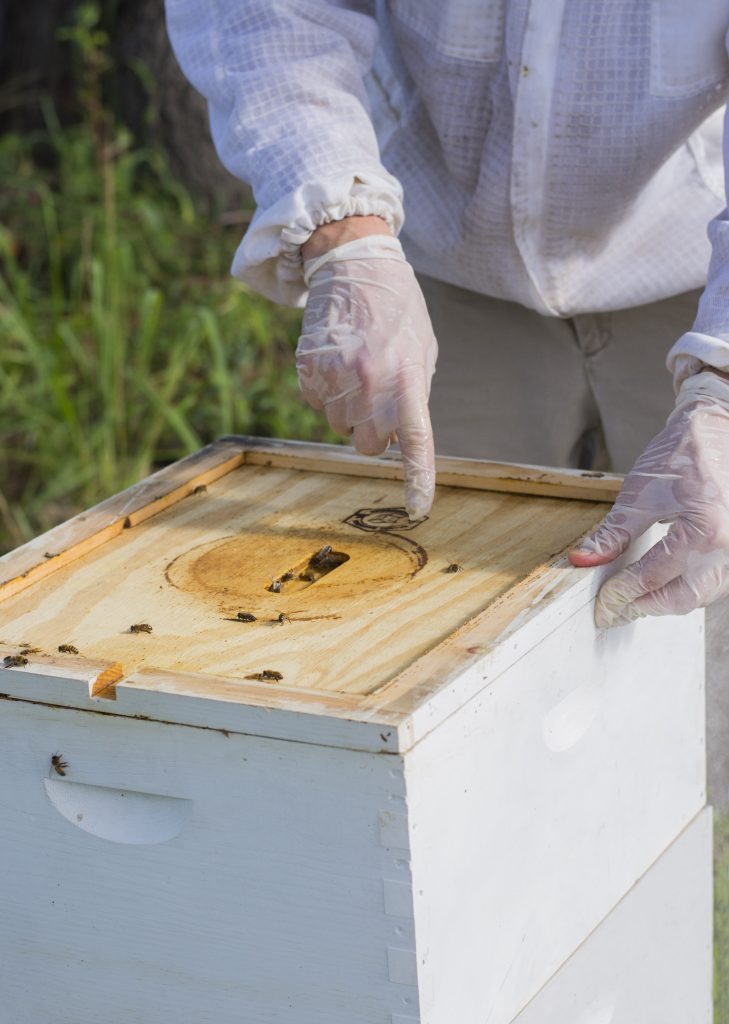
Douglass Sullivan-Gonzalez points out the differences between his male ‘drone’ bees and the females. Photo by Christian Johnson
Bailey’s initial interest came from a misconception detailed in the opening credits of The Bee Movie, funnily enough.
“The narrator mentions the myth that bees should not be able to fly, but they are able to anyway,” she said. “I was astounded by how a small black and yellow insect could defy the laws of physics. While I now know, bees do not defy any scientific laws, I am still interested in the important role they play in our world.”
And that, they do. Honey bees pollinate about a third of major US agricultural crops and serve as an essential part of the agricultural economy.
The club plans to host elections in August and appoint its first president. They will start with four to six hives, cultivating their growth. The club also hopes to make beekeeping more affordable by doing the project as a group.
“It is pretty expensive on the front end – suits, smoker, hives, bees – so working with a group mitigates some of those costs,” DSG said. “I would encourage anyone with an interest to join the bee club and get a sense of the year-round commitment to the world of honey bees.”
Bailey said she loves being a part of the club because it allows her to discuss her shared interest in beekeeping with her peers.
“I am so glad DSG wanted to share his wisdom and love for beekeeping with the next generation,” Bailey said. “He will be a great resource when our gives come in for questions and advice.”
The club’s goal is to continue to grow in number, in bees and beekeepers. Right now, the club is mainly made up of Honors College students, but anyone is allowed to join… “as long as they don’t mind being stung a few times.”
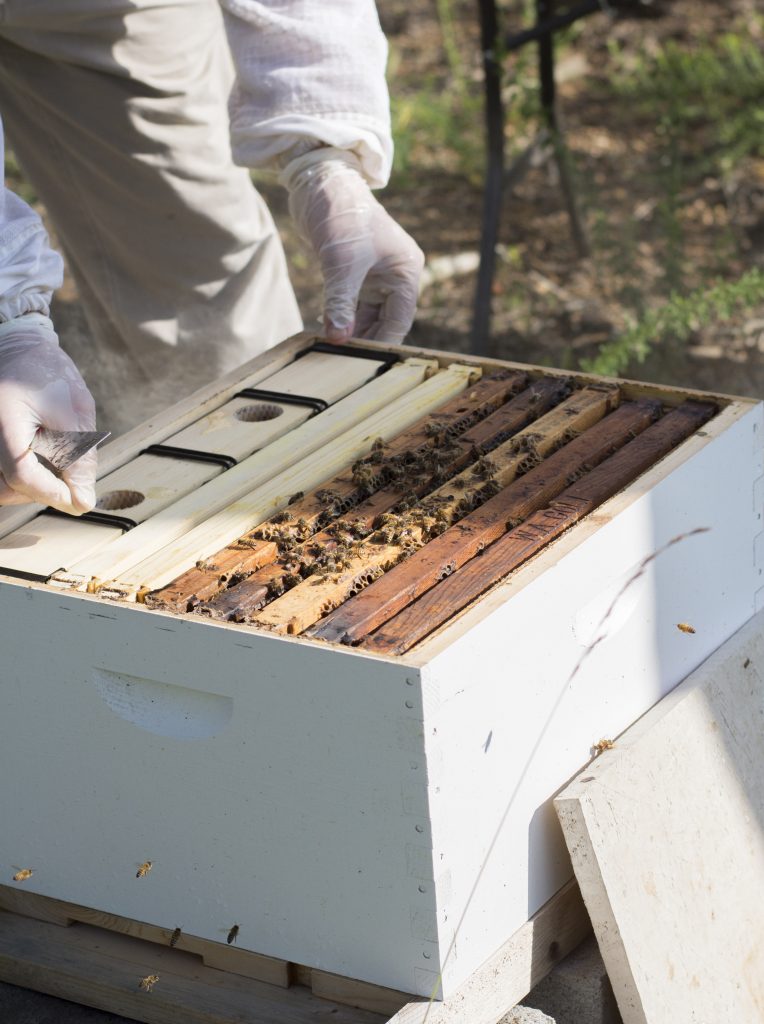
Beekeeper Douglass Sullivan-Gonzalez carefully extracts a honeycomb from one of his hives. Photo by Christian Johnson






